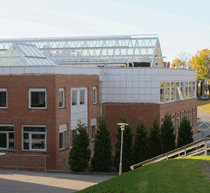Overview of some of NR's projects
Overview of some of NR's projects
To see a smaller range of projects within a department or research area, check the appropriate boxes. If several boxes are selected, then the selected projects satisfies at least one of the boxes in the selected column(s).
Pages
Pages


 The efficiency of antibiotics has over a long period led to overuse and misuse, causing the bacteria to develop resistance to one or more antibacterial agents. Infections and diseases that were successfully treated by antibiotics are now becoming an increasing public health problem.
The efficiency of antibiotics has over a long period led to overuse and misuse, causing the bacteria to develop resistance to one or more antibacterial agents. Infections and diseases that were successfully treated by antibiotics are now becoming an increasing public health problem.  How to get to NR
How to get to NR Share on social media
Share on social media Privacy policy
Privacy policy